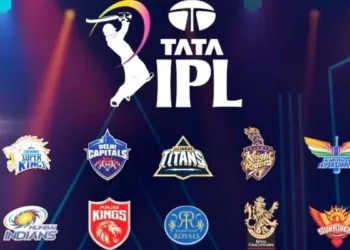The music world lost a legendary voice today as popular Assamese singer Zubeen Garg passed away at the age of 52 after a tragic scuba diving accident in Singapore on Friday around 1:30 PM local time. Known as the “Heartthrob of Assam” and “rockstar of the Northeast”, Garg’s sudden demise has left millions of fans across India and the world in shock.
Table of Contents
Zubeen Garg: Life and Legacy at a Glance
| Personal Details | Information |
|---|---|
| Full Name | Zubeen Borthakur |
| Birth Date | November 18, 1972 |
| Death Date | September 19, 2025 |
| Age at Death | 52 years |
| Origin | Assam, India |
| Languages Sung | 40+ languages and dialects |
| Total Songs | Over 40,000 recordings |
| Famous Hindi Hit | “Ya Ali” from Gangster (2006) |
| Primary Industries | Assamese, Bengali, Hindi cinema |
| Cause of Death | Scuba diving accident in Singapore |
The Tragic Final Day
Zubeen Garg was scheduled to perform at the North East Festival in Singapore when the devastating accident occurred. Singapore police rescued him from the sea and rushed him to a nearby hospital where he underwent intensive treatment. Despite medical efforts, the beloved artist couldn’t be saved, marking the end of an era in Indian music.

From Zubeen Borthakur to Musical Icon
Born Zubeen Borthakur on November 18, 1972, this musical genius transformed from a small-town boy in Assam to becoming one of India’s most versatile singers. His journey began in the regional music scene, where his powerful voice and emotional depth quickly gained recognition.
Breaking Barriers with “Ya Ali”
Zubeen’s breakthrough moment came with the hauntingly beautiful track “Ya Ali” from the 2006 Bollywood film “Gangster.” This mystical song introduced him to pan-Indian audiences and remains his most recognized Hindi composition. The track’s success proved that regional artists could achieve mainstream Bollywood success while maintaining their unique artistic identity.
Musical Versatility Beyond Boundaries
Zubeen Garg recorded over 40,000 songs in multiple languages, having sung in 40 other languages and dialects, making him one of India’s most linguistically diverse artists. His repertoire included:
- Assamese folk and modern songs that preserved cultural heritage
- Bollywood hits that brought Northeast music to national platforms
- Bengali compositions that showcased his cross-regional appeal
- Regional festival songs that celebrated diverse Indian cultures
His ability to seamlessly switch between languages while maintaining emotional authenticity set him apart in the Indian music industry.
Cultural Ambassador of Northeast India
Zubeen Garg served as an unofficial cultural ambassador, introducing Northeast Indian culture to mainstream India through his music. His participation in international festivals like the North East Festival in Singapore demonstrated his commitment to promoting regional music globally.
The singer’s work often featured in cultural festivals across India, where he bridged the gap between traditional Assamese music and contemporary Indian cinema.

Industry Reactions and Tributes
Popular Assamese actor Adil Hussain expressed his “devastation and shock” at the news, noting Garg’s immense contribution to Assamese music. Political leaders, including Assam’s Chief Minister, have offered condolences, highlighting his impact beyond entertainment into cultural preservation.
The Bollywood music community has lost not just a singer, but a bridge between regional and national cinema that inspired countless artists to pursue cross-cultural musical collaborations.
Beyond Music: The Complete Artist
Zubeen wasn’t just a singer; he was a complete entertainer who understood the nuances of different musical traditions. His work contributed significantly to regional cinema development, particularly in Assamese and Bengali film industries.
His approach to music composition and cultural storytelling influenced modern fusion music trends in Indian cinema, proving that authenticity could coexist with commercial success.
A Voice That United Cultures
What made Zubeen Garg extraordinary was his ability to maintain his cultural roots while appealing to diverse audiences. His multilingual capabilities weren’t just technical skills but represented a deep understanding of India’s cultural diversity.
His success story became an inspiration for aspiring regional artists seeking to make their mark in national entertainment industries.
The Legacy Lives On
Zubeen Garg’s influence on Indian music extends far beyond his recordings. He demonstrated that regional artists could achieve national recognition without compromising their cultural identity. His approach to music production and cross-cultural collaboration continues to inspire contemporary artists.
The tragic accident also highlights the importance of water safety during recreational activities, especially when traveling internationally for professional commitments.
Zubeen Garg’s untimely passing marks the end of a remarkable musical journey that touched millions of hearts. His legacy as a cultural ambassador and musical innovator will continue inspiring future generations. Stay updated with more entertainment news at Techno Sports.
Frequently Asked Questions
Q1: What made Zubeen Garg famous beyond Assam?
Zubeen Garg achieved pan-Indian fame primarily through his haunting rendition of “Ya Ali” in the 2006 Bollywood film “Gangster.” This breakthrough track showcased his unique vocal style and emotional depth to national audiences, proving that regional artists could successfully crossover into mainstream Hindi cinema. His ability to sing in over 40 languages and dialects, combined with his deep understanding of various cultural musical traditions, made him a sought-after voice for composers looking to add authenticity and diversity to their projects. His success opened doors for other Northeast Indian artists in Bollywood.
Q2: How many songs did Zubeen Garg record in his career?
Zubeen Garg recorded an astounding 40,000+ songs throughout his career spanning over three decades. This incredible output included compositions in more than 40 languages and dialects, making him one of India’s most prolific recording artists. His repertoire ranged from traditional Assamese folk songs and modern regional compositions to Bollywood hits and Bengali cinema tracks. This vast discography reflects not just his productivity but his commitment to preserving and promoting diverse musical traditions across India, establishing him as a cultural bridge between different linguistic and regional communities.








